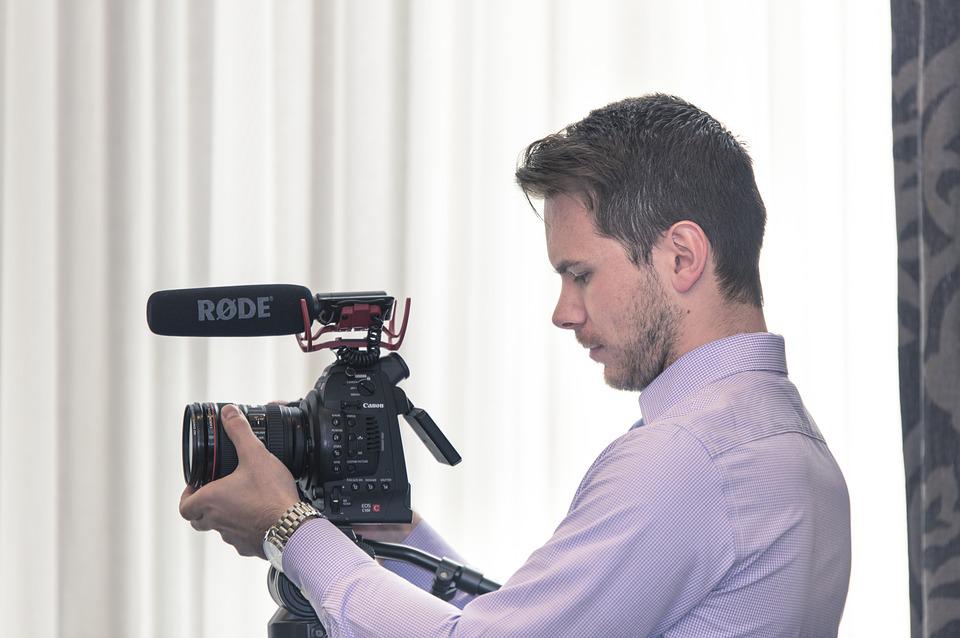
Rapid technological improvements in the last couple of decades have promoted diverse occupations and professions that used to be limited to particular groups of people.
The development of the television and film industry, the Internet, and social media platforms, have encouraged people’s imagination and creativity, focusing on the arts.
Videography is one of those professions.
We’ll talk about the most important facts about Videographers in this article, as well as the process and cost of becoming one.
Table of Contents
What Is a Videographer?
A Videographer, as the name suggests, is an individual who records live events and other video productions with video production equipment.
They have also been known as camera operators.
What Does a Videographer Do?
The most common duties a Videographer has are discussing a plan with clients about the required video, shooting and editing the video, managing light and sound technicians when needed, and doing regular maintenance to their video production equipment.
What Is the Difference Between a Videographer and a Cinematographer?
These two professions have created confusion in the past since they both involve recording videos, but some small differences can help to distinguish them.
Videographers generally work by themselves or with smaller crews than Cinematographers, precisely because their projects don’t require it.
Another significant difference is what they use to record videos: Videographers employ electronic media such as videotapes or streaming media, while Cinematographers use film.
This profession is directly associated with major productions such as films, where Cinematographers can develop artistic and creative decisions more profoundly.
How Can I Become a Videographer?
In general, it’s necessary to obtain a higher education degree, such as an Associate’s or Bachelor’s degree to start working as a Videographer since a high level of specialization is required to operate video production equipment, and video editing software, which is commonly used nowadays.
However, some people start working on their own and gain experience on-the-job.
On-the-job Training
For those who cannot wait to start their careers as Videographers, there is the option of learning basic facts about the profession through books and manuals, for instance and buying basic video equipment to start working.
In this way, people will learn as their work evolves and get more opportunities.
Associate’s Degree
An Associate’s degree can be a great option if you want to acquire basic entry-level knowledge about videography or video production and if you want to work independently, starting your own business.
In these programs, you’ll learn different techniques, how to use and maintain video production equipment, and video-editing software.
Bachelor’s Degree
This degree is generally for those who want to gain a more profound understanding of the industry, the techniques and equipment used, and have more theoretical and practical experience.
Having a higher education degree can also improve your chances of getting your first job and having a higher salary.
In some cases, students can start with an Associate’s degree and then continue to pursue a Bachelor’s degree.
How Long Does Becoming a Videographer Take?
This is going to depend on the pathway you choose.
If you prefer to enroll in an Associate’s degree, you could last two years studying full-time.
For a Bachelor’s degree, studying full-time, you’ll need four years to graduate.
How Much Does Becoming a Videographer Cost?
The cost of becoming a Videographer can be affected by the city where you live, and the type of institution and program you choose.
An Associate’s degree can cost between $5,000 and $10,000 per year.
A Bachelor’s degree is usually from $9,000 to $35,000 per year.
Regarding on-the-job training, it would be more difficult to calculate an average cost.
This will depend on the books or manuals you purchase, as well as the video equipment you acquire.









